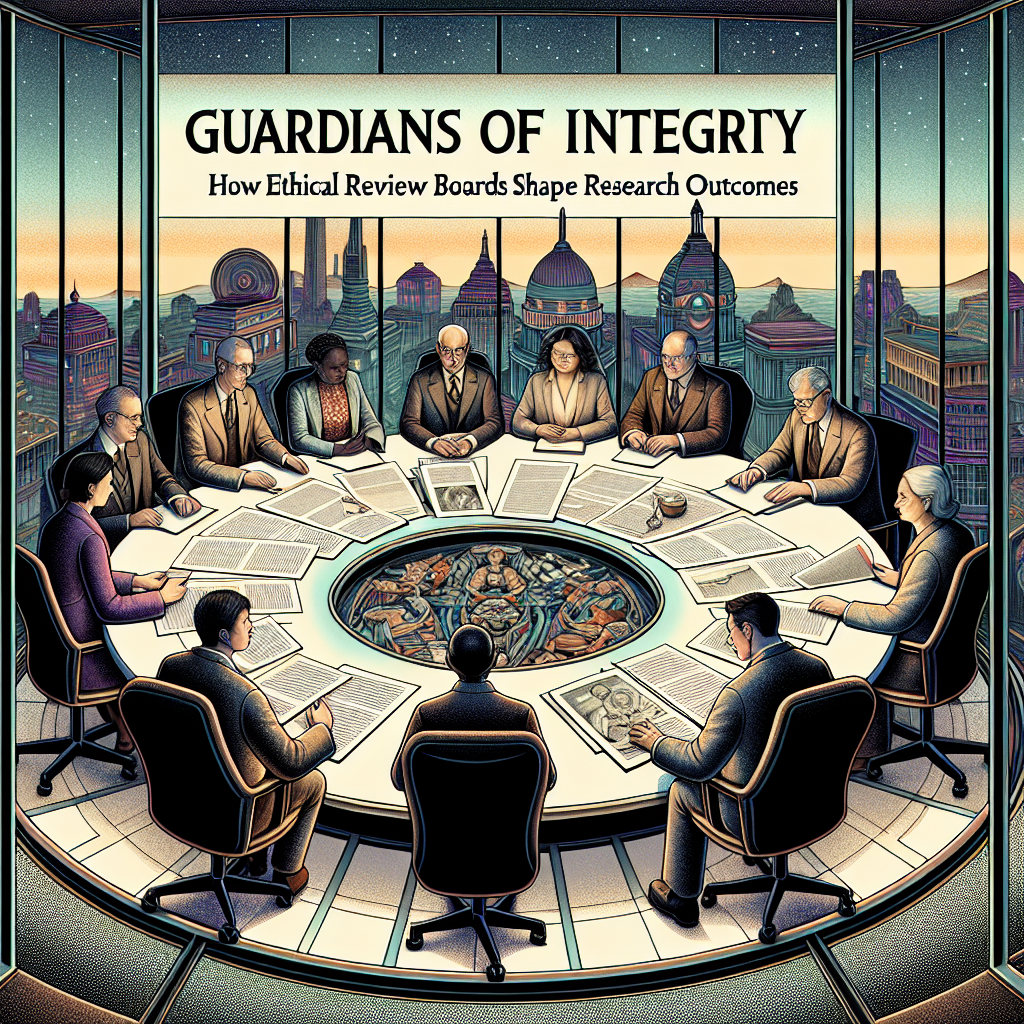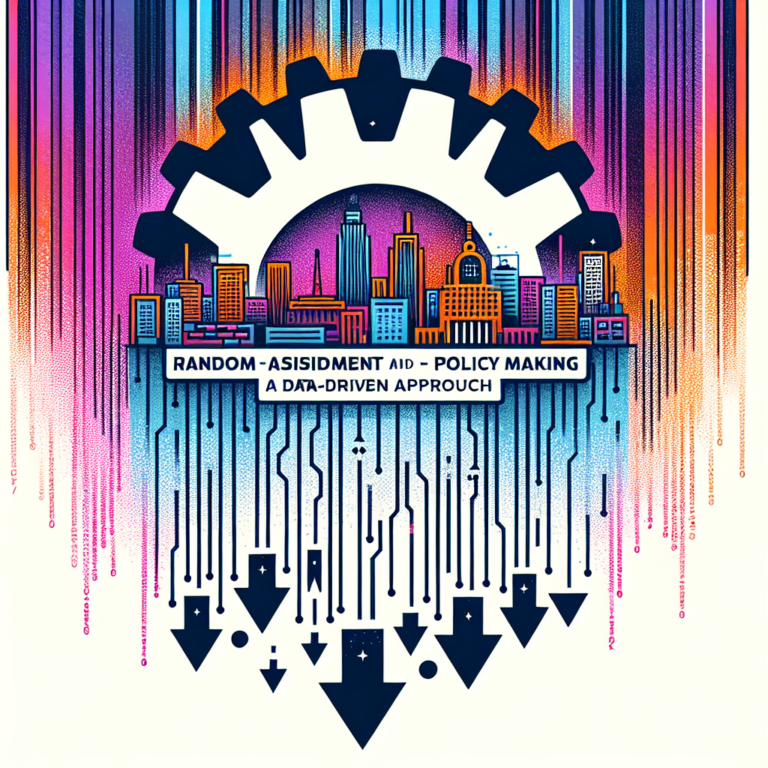
In the intricate world of research, where the boundaries of discovery and ethical responsibility often blur, Ethical Review Boards (ERBs) emerge as the unwavering Guardians of Integrity. Their role is not just about compliance; it’s about safeguarding the participants’ rights and ensuring the validity of research results. This article delves into the pivotal influence of ERBs, illuminating their essential functions, real-world applications, and how they ultimately shape the outcomes of social, medical, and scientific research.
The Mighty Role of Ethical Review Boards
What Are Ethical Review Boards?
Ethical Review Boards, often referred to as Institutional Review Boards (IRBs) or Research Ethics Committees (RECs), are established to oversee research involving human participants. Their primary mission is to protect the dignity, rights, and welfare of research subjects. But their responsibilities extend beyond mere oversight; they serve as an ethical compass for researchers navigating complex moral landscapes.
Historical Context: The Evolution of ERBs
The need for Ethical Review Boards became apparent after a series of unethical research practices, most notably the Tuskegee Syphilis Study. This shocking revelation served as a catalyst for regulatory changes, leading to the formal establishment of ERBs. They play a crucial role in ensuring that research maintains a balance between scientific inquiry and ethical considerations, making them the Guardians of Integrity in the research domain.
The Process: How Do ERBs Operate?
Initial Review: The Gatekeepers of Ethical Research
When a research proposal is submitted, ERBs meticulously evaluate it on various ethical grounds. This can involve scrutinizing consent forms, research methodologies, and any potential risks to participants. Through this rigorous review process, ERBs help ensure that vulnerable populations are not exploited and that ethical norms are upheld.
Continuous Monitoring: Oversight Beyond Approval
The role of Guardians of Integrity does not cease post-approval. ERBs continue to monitor ongoing studies, ensuring researchers adhere to approved protocols. This vigilance is crucial in preventing ethical violations and protecting participant wellbeing throughout the research lifecycle.
| Stage of Review | Key Focus Areas | Outcome |
|---|---|---|
| Initial Review | Consent, Risks, Benefits | Approval or modification |
| Ongoing Review | Adherence to protocol | Compliance assurance |
Case Studies: The Impact of Ethical Review Boards in Action
Case Study 1: The Belmont Report and Its Influence
The Belmont Report laid the foundation for ethical principles in research, guiding the establishment of ERBs across the U.S. This report emphasizes respect for people, beneficence, and justice, shaping the framework within which ERBs operate. The ethical guidelines established by the Belmont Report have led to a more standardized process in how Guardians of Integrity evaluate research protocols.
Relevance Analysis: The Belmont Report serves as a cornerstone for ethical review processes, ensuring that researchers adhere to established norms and prioritize participant safety.
Case Study 2: The FDA’s Regulations on Drug Trials
In response to historical ethical breaches, the Food and Drug Administration (FDA) mandates that all investigational drugs undergo rigorous review by ERBs before human trials can commence. This not only protects participants but also enhances public trust in the research process.
Relevance Analysis: By enforcing these regulations, the FDA empowers Guardians of Integrity to hold researchers accountable, promoting high ethical standards in pharmaceutical research.
Case Study 3: The Sayano-Shushenskaya Hydroelectric Power Station Accident
The tragic accident in Russia highlighted the importance of ethical considerations beyond human subjects. In environmental and engineering research, ERBs are critical in assessing broader impacts, ensuring studies consider community safety and environmental integrity.
Relevance Analysis: This incident illustrates that Guardians of Integrity must consider the ripple effects of research outcomes, reinforcing ethics as a broader societal imperative.
The Challenges Faced by Ethical Review Boards
Balancing Innovation and Ethics
One of the most challenging aspects for ERBs is striking a balance between fostering innovation and upholding ethical standards. Researchers often feel that extensive review processes can hinder their work, while ERBs must ensure that the rights and welfare of participants take precedence.
The Global Disparity in Ethical Review Standards
Ethical review processes vary significantly across countries. In some regions, the oversight may be rigorous, while in others, lapses can lead to unethical practices. This disparity presents significant challenges for international research collaborations, requiring Guardians of Integrity to advocate for more consistent ethical guidelines globally.
Technology and Ethical Implications
The rapid evolution of technology presents new ethical dilemmas, particularly regarding data privacy and consent in an increasingly digitized world. ERBs must evolve with technology, ensuring they address new ethical challenges related to data security and participant autonomy.
Best Practices for Researchers and Ethical Review Boards
Engaging Stakeholders
To foster a culture of ethical research, ERBs should engage diverse stakeholders, including patients, community members, and researchers. This collaborative approach not only enhances transparency but also nurtures public trust.
Continuous Education and Training
For ERBs to remain effective Guardians of Integrity, ongoing education is vital. Both board members and researchers should stay updated on the latest ethical standards and best practices.
Streamlining the Review Process
While thoroughness is essential, finding ways to streamline the review process can help mitigate frustrations among researchers while ensuring ethical integrity is maintained.
Conclusion: The Vital Role of Ethical Review Boards
In an era where research is paramount to societal progress, Ethical Review Boards stand as the Guardians of Integrity. Their commitment to upholding ethical standards not only protects research participants but also enriches the quality and validity of research outcomes. By continuously evolving and addressing emerging ethical challenges, ERBs will ensure that research remains a force for good in society.
As we reflect on the importance of ethical oversight in research, we can recognize that these boards do not merely serve as regulatory bodies; they are advocates for justice, equity, and respect—a testament to the value of ethical integrity in advancing knowledge.
FAQs About Ethical Review Boards
1. What is the main purpose of an Ethical Review Board?
The primary purpose of an Ethical Review Board is to ensure that research involving human participants is conducted ethically, protecting their rights and welfare throughout the research process.
2. How do Ethical Review Boards evaluate research proposals?
ERBs assess research proposals based on ethical principles, focusing on participant consent, potential risks, and the overall benefits of the study to ensure that it aligns with ethical standards.
3. Are Ethical Review Boards required for all research?
Not all research requires ERB review; however, any research involving human subjects typically necessitates an ethical review to comply with institutional and regulatory standards.
4. How do Ethical Review Boards adapt to technological advancements?
ERBs adapt to technological advancements by updating their policies and guidelines to address new ethical considerations, such as data privacy and informed consent in digital environments.
5. What can researchers do to facilitate the ethical review process?
To facilitate the process, researchers should provide thorough documentation, anticipate possible ethical concerns, and engage in open communication with ERB members throughout the review cycle.
Through the lens of the Guardians of Integrity, it becomes clear that the role of Ethical Review Boards is not merely a procedural formality; it is a commitment to promoting fairness and ethical integrity in the pursuit of knowledge. By understanding their significance, we can appreciate the foundational role these boards play in shaping impactful and responsible research outcomes.















